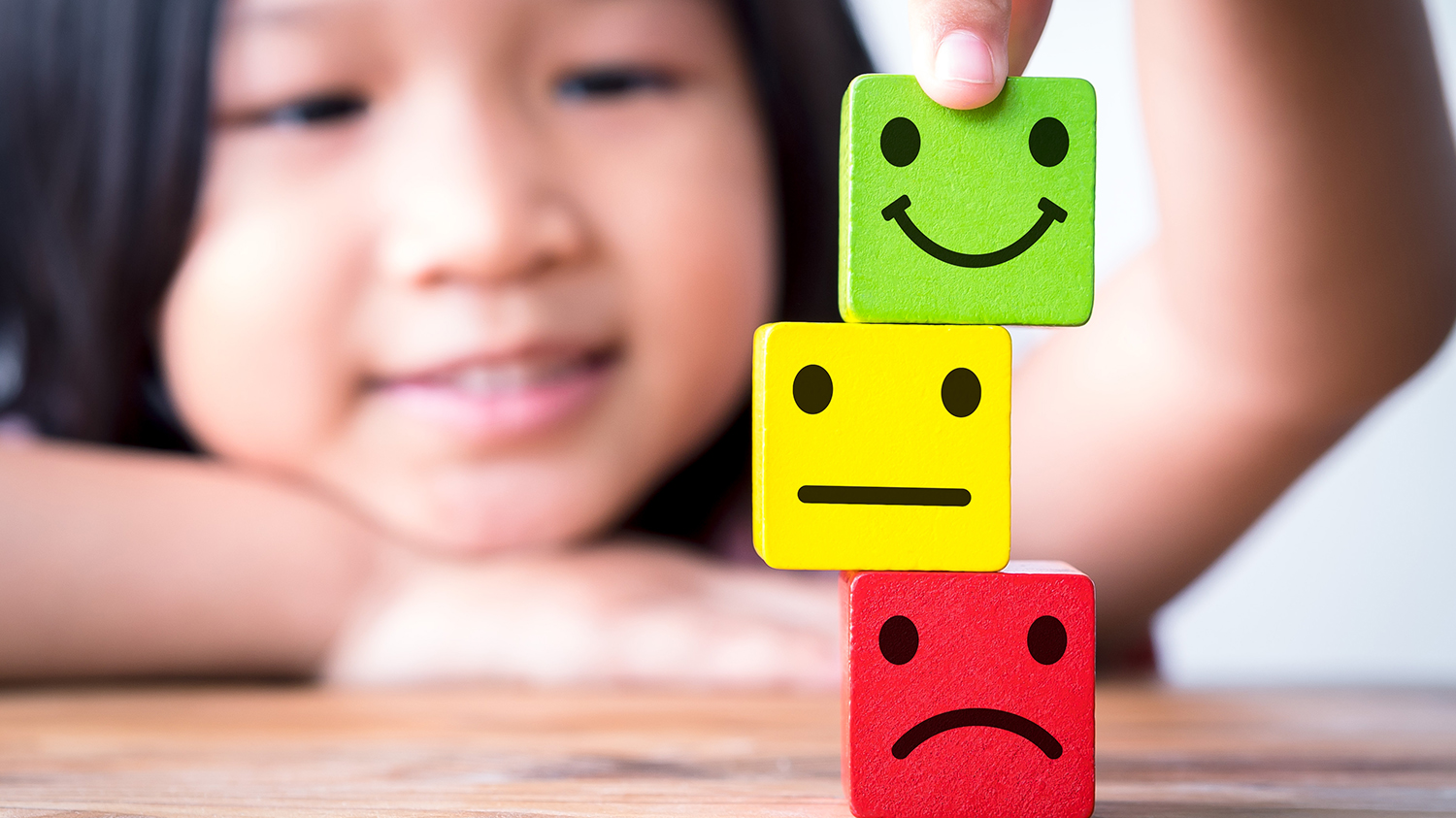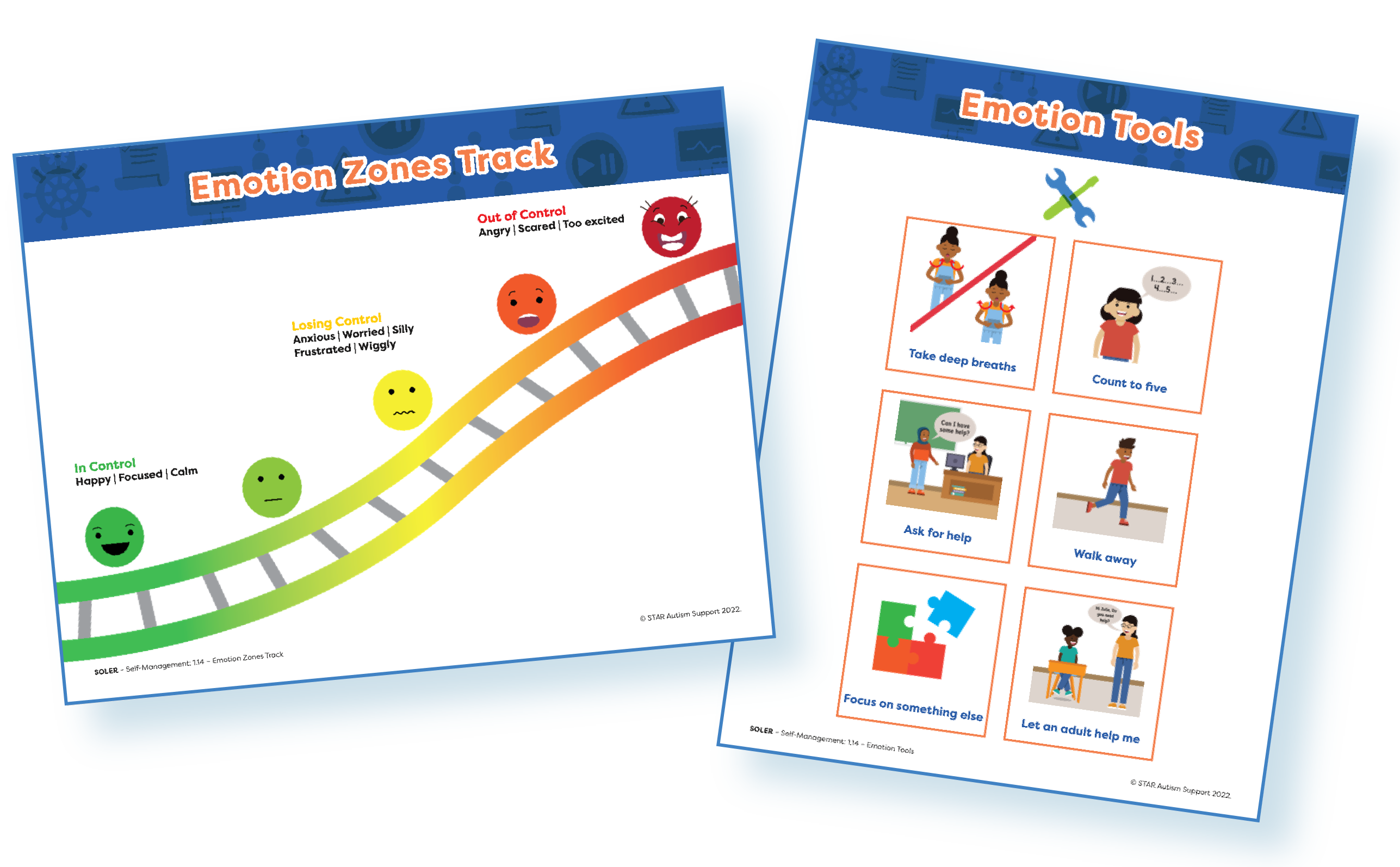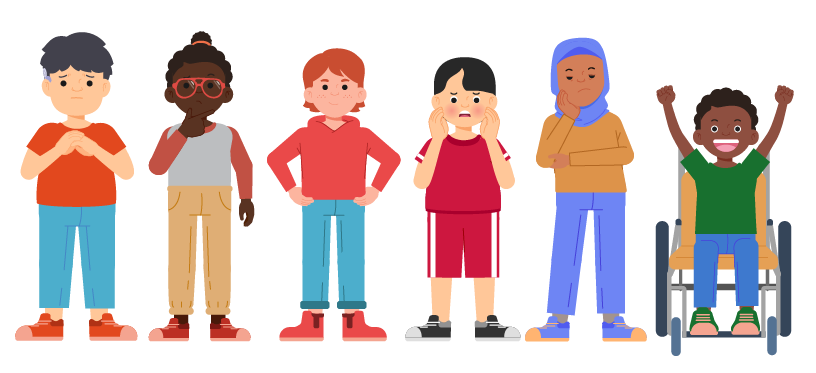February 2025 Newsletter | Emotions and Autism

Lea este artículo en español aquí.
Emotions and Autism
Emotions function in many ways in our lives: They motivate us to act, they help us communicate in social contexts, they influence our thoughts and decisions, and they help us connect body sensations to feelings. Autism’s effects on processing and expressing emotions varies from person to person: Some autistic individuals will benefit from support and intervention to develop coping strategies for emotional regulation and skills to foster meaningful social relationships. Whether your goal is to support students with identifying and expressing emotions, balancing sensory impacts while managing emotions, or learning new emotional regulation skills, there are many evidence-based practices to help students in their development.
Identifying and Expressing Emotions Identifying emotions is a critical first step to understanding and monitoring them. Understanding and interpreting emotions can be difficult, though, which can lead to challenges for some autistic learners as they learn to respond appropriately in social situations.
|
Managing Sensory Sensitivity and Change Consider environmental contributors and individual sensory sensitivities and how they impact emotional dysregulation. These impacts can make it difficult for individuals to manage and express their emotions effectively.
|
Developing Emotional Regulation Skills
Some individuals with autism may require support and intervention to develop coping strategies for emotional regulation and skills to enhance social interactions and relationships.
- Provide visual supports and cues to reinforce emotion skills and strategies for controlling emotions. These SOLER worksheets are a great set to introduce and revisit as needed:
- Use evidence-based strategies to help support emotional regulation and skill development:
- Visual supports
- Role-play
- Modeling
- Prompting
- Reinforcement

Social Learning and Emotional Regulation (SOLER)
STAR’s comprehensive SOLER curriculum is packed with lessons to support emotion recognition and skill development. Users can access content for identifying and expressing emotions, understanding emotions in context, controlling emotions, and more, including generalization and home support tools to supplement the classroom materials!
SOLER’s lessons and visual supports are ready to help your students learn about emotions!

Stay tuned for more from SOLER in 2025!
Interested in learning about SOLER? Let us know!
Stay tuned this year for exciting announcements about STAR’s social and emotional materials. We are working on new evidence-based resources for supporting you and your students!


